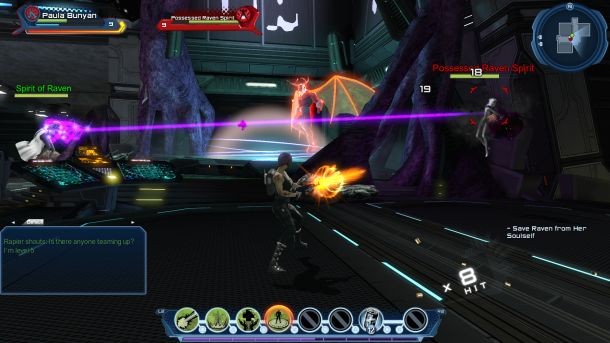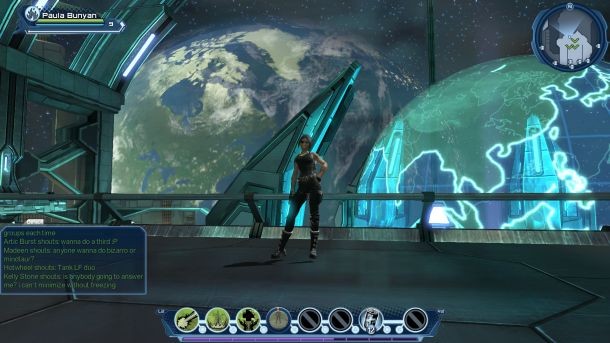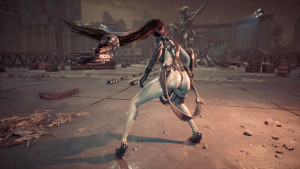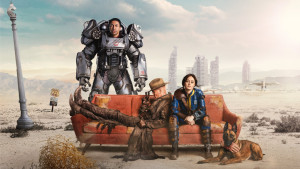Please support Game Informer. Print magazine subscriptions are less than $2 per issue
Five Things I Learned From The DC Universe Beta

I'm as surprised as anyone that I've found a lot to like while playing the DC Universe closed PC beta. I've never been much of a believer in the game – it has showed poorly at two consecutive E3s, and Sony Online Entertainment doesn't have a great recent track record – but I've come around in my week tooling around Metropolis. It's definitely still a beta, but DC Universe has come a long way since last I saw it.
5. This is first and foremost an action game.
The other two major superhero MMOs (City of Heroes/Villains and Champions Online) pushed online role-playing games toward the action end of the spectrum, but DCU goes a country mile further. I emphatically suggest playing it with a gamepad on PC (sorry, no hands-on with the PS3 beta yet!). The two-button combat, defensive rolls, and dramatic power activation just feel right on a controller. Chatting is harder, which is a bummer, but that's a price I'm more than happy to pay for the solid action-style gamepad controls.
DCU is hardly God of War, but it honestly does feel closer to X-Men Legends than World of Warcraft.

4. Wrecking dudes: still fun.
One of the biggest issues that traditional MMOs struggle with is the immediacy of combat – specifically, their lack thereof. Pick apart the World of Warcraft UI, for instance, and you'll notice a dozen little tricks that Blizzard uses to make combat feel awesome without functionally changing anything: screen-shaking abilities, animated critical damage numbers, and the like. In DCU, I can shoot a rope of vines that captures an enemy and pulls him toward me, light him on fire with a flamethrower, then tumble backwards while shooting him with enough force to pop him into the air. From level one, you absolutely ruin dudes' days without hardly trying. I love me some WoW, but this is a whole different animal than pressing two buttons to have my death knight perform a pair of identical-looking axe swipes that make big numbers pop up.

3. Voice makes all the difference.
I've read the equivalent of the collected works of Dostoyevsky twice over in boring, typo-ridden quest text in my time with MMOs. DCU doesn't ask players to read any more than the names of your equipment – and often not even that, as a handy color-coded cheat sheet pops up showing you the difference between a new piece's stats and your existing equipment. Every quest I've encountered has had a fully voiced description. Think about it: You could never have to skip through quest text again and still get the story. Most of the time, you don't even have to stand and listen to someone talk; an animated portrait shows up while someone talks to you via communicator as you go on your merry way. This may sound like a boring bullet point from a press release, but it makes a big difference in the way you play the game.
Next up: Why solo instances work here, and why I'm pumped to get to endgame

2. Solo instances are awesome.
So far, every questline in DCU has followed the same basic pattern. First, you engage in some combat out in the city, often fighting alongside NPC troops like the Science Police or jumping into dynamic content like rescuing mortal EMT teams from bloodthirsty demons. After going through a few of those with some side objectives thrown in along the way, you're sent to a story instance where you often fight alongside the iconic superheroes and villains.
One particularly cool scenario had Trigon possessing Raven, and using her powers to dominate the rest of the Titans. As you fight each of them and break Trigon/Raven's control, they join in the battle against the remaining charmed heroes. Finally, Zatanna shows up to open a portal into Raven's soul itself, where you fight dark reflections of her psyche and eventually join with an awesome, glowing white incarnation of her true self against Trigon's twisted simulacra. These instances – I've done four of them already, and I'm not yet level 10 – are a fantastic way to cap off each storyline, and offer interestingly unique combat situations.

1. This isn't the game I thought it was.
Based on what I had seen previous to getting my hands on the beta, I was under the impression that this was a smaller-scale, instance-driven game with crappy, choppy combat and little to offer anyone who wasn't already a DC Comics superfan. I am extremely glad to report that I was wrong. The combat is downright fun, pushing players to use their unlocked combos to build up power to unleash their true superpowers. The public spaces are gigantic, with both Metropolis and Gotham represented with multiple square miles of city blocks that house a wide variety of content and rewarding exploration above and beyond the thrill of tearing around using superpowered movement abilities.
The endgame is still a relative unknown as I haven't gotten there yet, but Sony Online says that DCU will launch with roughly half of its content dedicated to endgame play. Additionally, much of the endgame content can be accessed by queueing yourself or your group up for instances, similarly to how World of Warcraft's dungeon finder works. I look forward to exploring the many activities that await at level cap, from Iconic PvP (where only your skill matters, since you're playing pre-kitted iconic characters like Batman and Deathstroke) to Alerts (four-player cooperative battles against waves of enemies) and eight-player raids.

Not everything is sunshine and roses in the DC Universe. Beta issues abound, from spotty latency to poor balancing and weird spawning issues. Much of the extensive voicework is placeholder audio (it had better be placeholder, anyway!) that saps the story of any charge. On the other hand, that's why it's a beta. If my experience so far is any indication of the game's direction, I'll be 100 percent on board the live game if Sony Online cleans up the details for launch.










